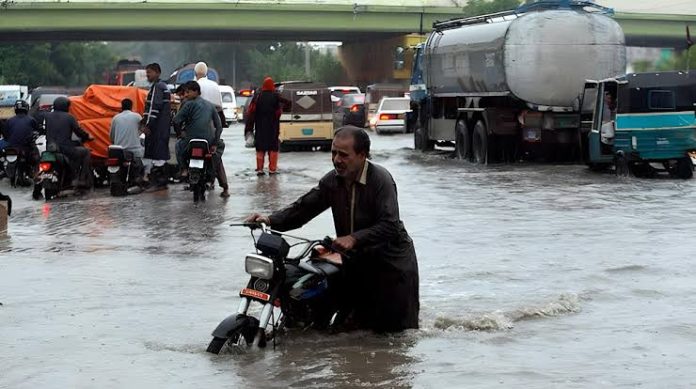In response to the ongoing monsoon emergency, the National Disaster Management Authority (NDMA), in collaboration with Jazz, has launched a real-time, location-based alert system to warn citizens living in flood-prone areas across Pakistan — with a particular focus on Punjab, where rising flood threats have put millions at risk.
Through this initiative, more than 23 million Jazz users now receive instant SMS alerts when they are in or near a high-risk zone. These messages deliver life-saving information and precautionary instructions using geo-fencing technology, forming part of the newly launched Disaster Early Warning System (DEW-3 – Monsoon).
A Timely Tech-Driven Response
The launch comes at a critical time. Since June, over 80 people have lost their lives due to heavy monsoon rains and flash floods that have ravaged multiple parts of the country. With climate disasters becoming more frequent and severe, this system marks a major step toward digitally empowering communities to act quickly during emergencies.
“This is a vital effort to ensure that no one is left uninformed during a crisis,” an NDMA spokesperson said. “We’re using technology to reach people directly, when and where they need help the most.”
How the System Works
Developed jointly by NDMA and Jazz, the system uses geo-fencing to identify users in vulnerable zones and send location-specific alerts via SMS. These alerts inform residents about incoming threats, safe evacuation routes, or precautionary measures — all in real-time.
The alerts complement other NDMA communication channels, including the Pak NDMA Disaster Alert mobile app, social media, and national news outlets.
Jazz’s Role in the Public-Private Partnership
Highlighting the importance of corporate involvement, Aamir Ibrahim, CEO of Jazz, stated, “With our wide network and advanced mobile technology, Jazz is proud to support NDMA in reaching millions quickly. As monsoon challenges continue, this partnership will help save lives.”
The collaboration was formalized in March 2025, as part of Pakistan’s broader strategy to modernize its disaster management systems and adapt to changing climate conditions.
Urgency Amid Climate Crisis
Pakistan remains one of the world’s top ten most climate-vulnerable nations, as ranked by the Global Climate Risk Index. With the memory of the devastating 2022 floods still fresh, initiatives like this alert system underscore the urgent need for early warning mechanisms and community-level resilience.
Officials reaffirm that this is just one component of a larger, evolving framework aimed at building a digitally responsive, disaster-ready Pakistan.


